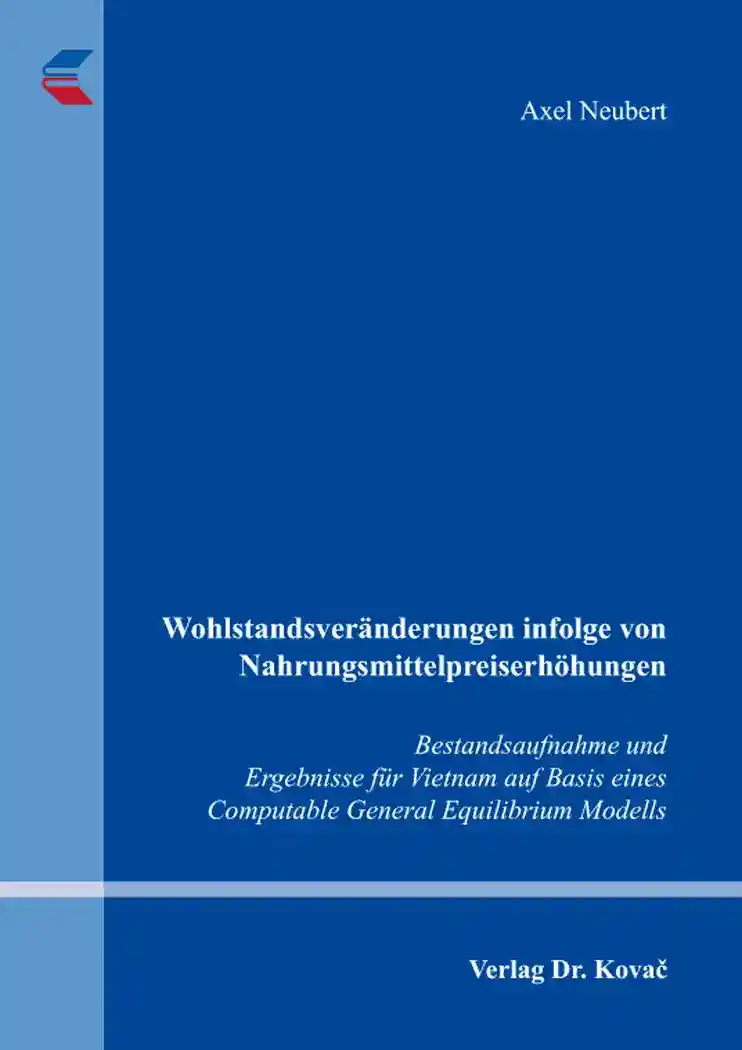Axel NeubertWohlstandsveränderungen infolge von Nahrungsmittelpreiserhöhungen
Bestandsaufnahme und Ergebnisse für Vietnam auf Basis eines Computable General Equilibrium Modells
Schriftenreihe volkswirtschaftliche Forschungsergebnisse, volume 213
Hamburg 2016, 222 pages
ISBN 978-3-8300-9167-7 (print)
ISBN 978-3-339-09167-3 (eBook)
About this book deutschenglish
Strong increases in international food prices since 2007 have raised concern that poverty could also significantly rise. It is commonly argued that higher food prices are decreasing the aggregated prosperity of private households. However, the relationship between food prices, household wealth and poverty rates is complex because of Vietnam’s unique economic position as one of the world’s largest exporters of food products. Food production and farming are significant income generators for private households, especially in rural areas. Following this line of argument, the hypothesis is put forward that increasing food prices in Vietnam lead to i) a higher GDP, ii) an increased prosperity of rural households and iii) an increased aggregated wealth of all households despite the higher food costs for urban households which mainly are net consumers. This threefold hypothesis will be proven empirically. A Computable General Equilibrium Model (CGE) is applied to analyse the impact of food prices in Vietnam.
Six core scenario simulations have been applied to establish a structure of the CGE Model. The base scenario to analyze the impact on economic and private wealth is a 50% increase of the international food prices. The other five simulations quantify the effects of a range of realistic political strategies. These are divided into three main groups: i) increased productivity in food farming, ii) better market entry and lower transaction costs and iii) increased welfare payments to poor households and their funding. Furthermore, detailed changes are depicted on the factor markets as well as the reaction of all economic subjects to those changes. This approach generates a highly detailed view of the interplay between the various aspects of rising food prices to arrive at a more precise understanding of its effect on private households. The results of the simulations demonstrate that Vietnam’s GDP and private wealth has significantly grown as a consequence of increased international food prices. Vietnam’s unique global position has also been validated.
